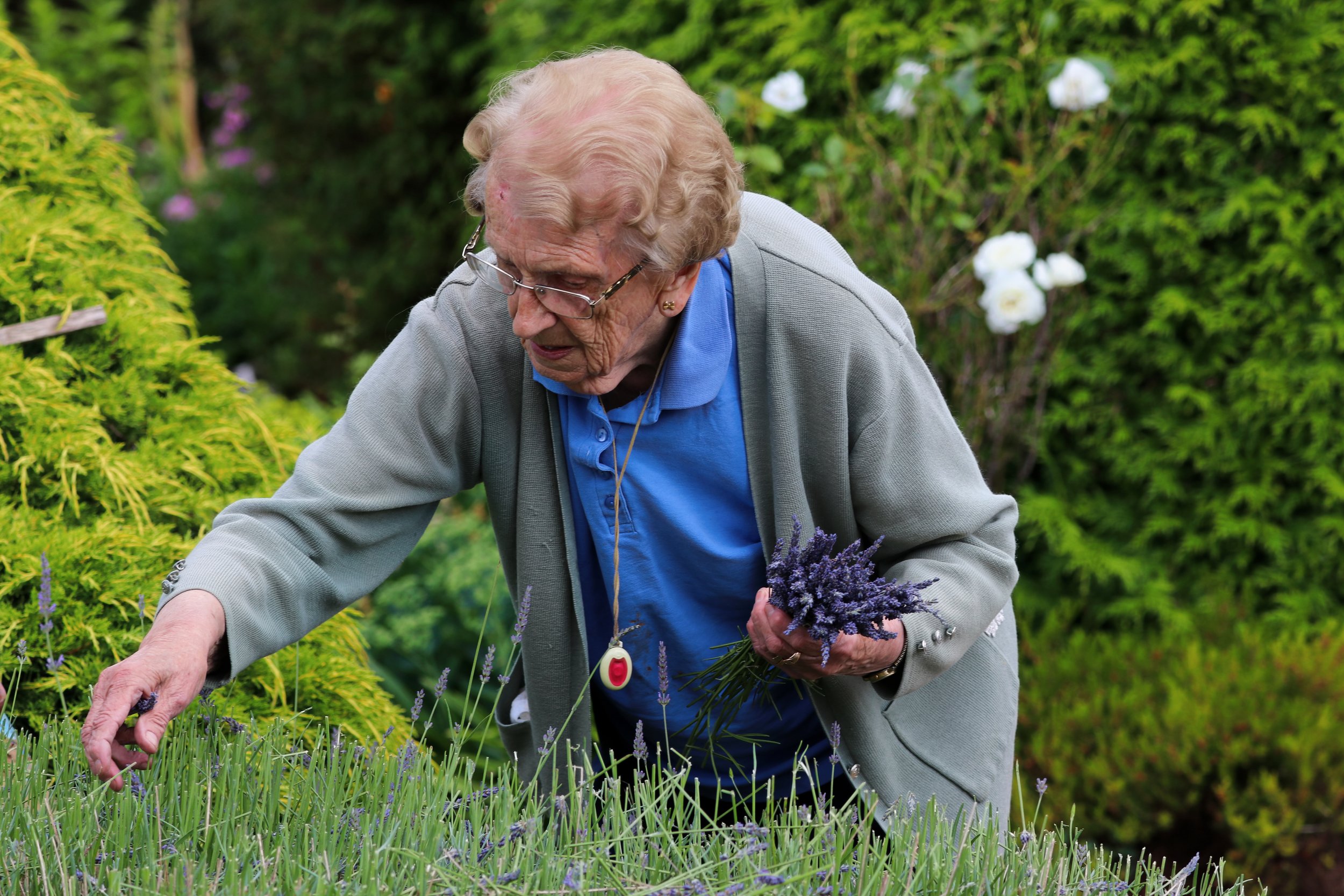Curiosity: The driving force that has shaped history..and will continue to do so.
Professor June Andrews (pictured here with Dame Judi Dench) was Director of the Dementia Services Development Centre, based at the University of Stirling. The world renowned dementia centre was funded by the Dementia Trust.
“Curiosity is a driving force that has shaped the course of history and will continue to do so, and Professor June Andrews has it in spades”, says the new Dementia Trust Advisor, Sonia Mangan.
For more than ten years, Professor June Andrews has been the authoritative and independent advisor for the Charity, The Dementia Trust, working with an amazing group of people who have volunteered to make change happen for people with Dementia.
Within Health and Social Care, few causes are as pressing and poignant as the growth in understanding, awareness, and evidence-based practice for people with dementia, their carers, and those employed to offer support, treatment, and solutions.
The profound impact it has on individuals, families, and communities is immeasurable. But amidst the challenges, there are beacons of hope, individuals whose curiosity, challenge, and innovative approaches continue to reshape the landscape of dementia care. Professor June Andrews cares about the world around her, is a solution seeker, rising above naysayers, standing proud as a woman who never stays in her comfort zone.
June has supported fourteen individuals, groups,
and charities with funding through the Disruption Awards.
Disruption Award 2023: Culturally Appropriate Resources
With the support of June, herself an international expert in Dementia Studies, the Dementia Trust has been able to work with individuals and groups to raise awareness of dementia and contribute to new thinking through the wonderful Disruption projects like Dementia Disruption Project 2023: Cultural Appropriate Resources One of the Trust’s awardees recently referred to the grants program as a program that “Disrupts the Norm” and “encourages people to think differently”.
As a leading figure in the field of dementia care, Professor June Andrews has dedicated her career to understanding, advocating for, and improving the lives of those affected by dementia. She has a wonderful ability to bring complex ideas, thinking, and research to people in a way that people can understand, and her engaging style and delivery have helped shape what the Dementia Trust is today.
The Dementia Trust "Making Things Better"
At the heart of Professor Andrews' work lies the Dementia Trust, a Charity she has supported since her early work as Director, Dementia Centre at the University of Stirling.
Prof. Andrews talks about “Making things better” with the Dementia Trust
Her approach has been shaped by her long career as a nurse and those early experiences of working with people with dementia resolved her to make things better.
Not through strategies or campaigns, but through evidence and research and “putting one foot in of the other” and influencing what happens on the ground, and that is the absolute focus of the Dementia Trust. June has also worked with the Dementia Trust's innovative programs, empowering countless individuals to become advocates and champions for dementia care.
There have been more than ten of these informative and innovative projects, talking about important areas like The Power of 'Power of Attorney' to looking at dementia differently like the creative work addressing end-of-life issues through art Pat: End of life Drawings by Norman Gilbert. From health and care professionals to family members, carers to policymakers, June’s influence extends far and wide, creating a ripple effect of positive change.
The Trust as a “Source of Joy!"
June describes working with the Dementia Trust as a source of joy as well as a source of serious hope for people in dark times. The volunteer Trustees who make up the Trust have described June as not one to shy away from challenges. And it has been a privilege for them to have her as their Advisor. Her willingness to take risks and push boundaries have led to wonderful and new initiatives and approaches in dementia care. She is a vocal advocate for policy reform, tirelessly campaigning for better resources, improved access to care, and greater support for both individuals with dementia and their carers.
Prof. Andrews talks about the Dementia Trust as a “Source of Joy, as well as a source of serious help for people with dementia”
Her influence extends far beyond the walls of the Dementia Trust, shaping policies and practices at the highest levels of government and institutions worldwide. Helping people through the maze Yet, perhaps the most profound aspect of Professor Andrews' work lies in the lives she touches daily. Through her compassion, her dedication, and her unwavering commitment to the cause, she brings hope to those who may feel lost in the maze of dementia. She reminds us that while the challenges are great, so too is the capacity for empathy, understanding, and love.
In a world where the prevalence of dementia is only set to rise, the work of pioneers like Professor June Andrews is more crucial than ever. Through her work at the Dementia Trust, she has not only transformed how we perceive and approach dementia care but also illuminating a path forward, guided by compassion, dignity, and respect. As we all journey into an uncertain future, her legacy serves as a beacon of hope, inspiring us all to strive for a world where every individual affected by dementia is seen, heard, and valued.
Thank you, June, for helping the Dementia Trust to Make Change Happen.
If you want to be part of our movement for change and have an idea which will help us stay curious – keep an eye on our website and social media for the next round of Disruption Awards.
If you want to be support the Trust to continue to Make Change Happen, go to Help us make things better for people with Dementia.



